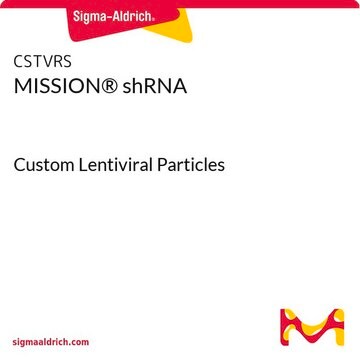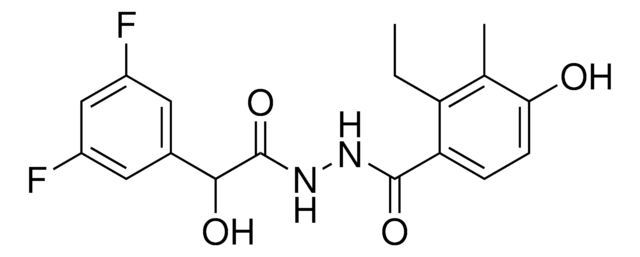SML1332
NG25 trihydrochloride
≥98% (HPLC)
Sinónimos:
N-[4-[(4-Ethyl-1-piperazinyl)methyl]-3-(trifluoromethyl)phenyl]-4-methyl-3-(1H-pyrrolo[2,3-b]pyridin-4-yloxy)-benzamide trihydrochloride, NG 25 trihydrochloride
About This Item
Productos recomendados
Quality Level
assay
≥98% (HPLC)
form
powder
storage condition
protect from light
color
white to beige
solubility
H2O: 5 mg/mL, clear
storage temp.
2-8°C
SMILES string
CC1=CC=C(C(NC2=CC=C(CN3CCN(CC)CC3)C(C(F)(F)F)=C2)=O)C=C1OC4=C(C=CN5)C5=NC=C4
InChI
1S/C29H30F3N5O2/c1-3-36-12-14-37(15-13-36)18-21-6-7-22(17-24(21)29(30,31)32)35-28(38)20-5-4-19(2)26(16-20)39-25-9-11-34-27-23(25)8-10-33-27/h4-11,16-17H,3,12-15,18H2,1-2H3,(H,33,34)(H,35,38)
Inchi Key
SMPGEBOIKULBCT-UHFFFAOYSA-N
Application
Biochem/physiol Actions
Other Notes
signalword
Danger
hcodes
Hazard Classifications
Acute Tox. 3 Oral - Aquatic Chronic 4
Storage Class
6.1C - Combustible acute toxic Cat.3 / toxic compounds or compounds which causing chronic effects
wgk_germany
WGK 3
flash_point_f
Not applicable
flash_point_c
Not applicable
Certificados de análisis (COA)
Busque Certificados de análisis (COA) introduciendo el número de lote del producto. Los números de lote se encuentran en la etiqueta del producto después de las palabras «Lot» o «Batch»
¿Ya tiene este producto?
Encuentre la documentación para los productos que ha comprado recientemente en la Biblioteca de documentos.
Nuestro equipo de científicos tiene experiencia en todas las áreas de investigación: Ciencias de la vida, Ciencia de los materiales, Síntesis química, Cromatografía, Analítica y muchas otras.
Póngase en contacto con el Servicio técnico








